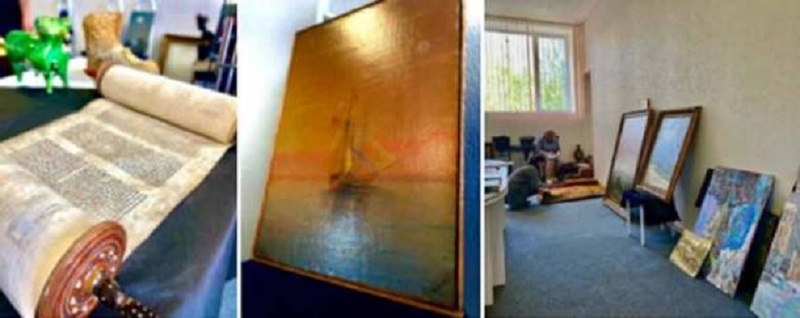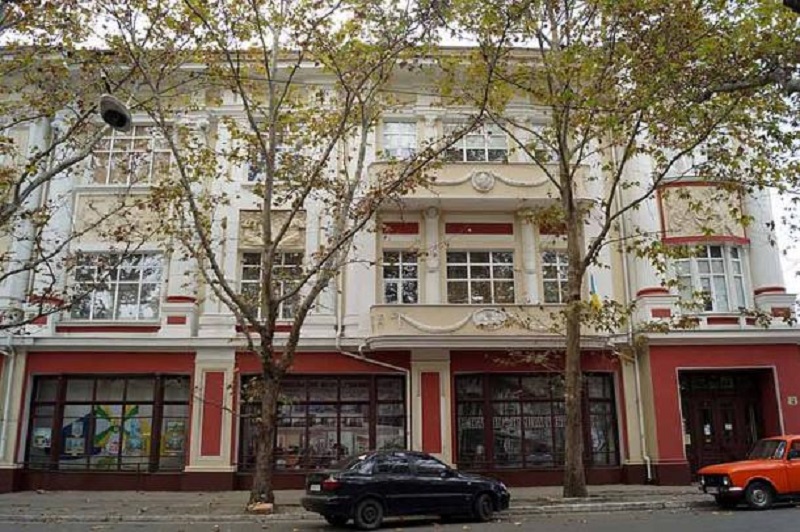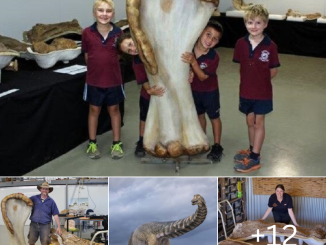Russian soldiers have entered a Ukrainian museum where they stole a priceless collection of ancient artifacts. Their haul included a 2,300-year-old Scythian gold crown.
The ancient crown was used by a Scythian ruler some 2,300 years ago. The Scythians were a 7th to 2nd century BC group of nomadic tribes who inhabited Ukraine, central Asia and the Middle East. Scythian horse-people were master’s with the bow and arrow and they invaded Europe centuries before Genghis Khan or Charlemagne. Now, the priceless headpiece is heading to Crimea to be used as a political tool.
Looking Down The Barrel Of A Russian Rifle
Armed Russian troops accompanying an artifacts specialist into the Museum of Local Lore in occupied Melitopol on Friday. Reports say they removed ‘198 treasures.’ Staff member Leila Ibrahimova said the staff tried to hide the most important relics and artifacts, ‘but somehow’ the [Russian Soldiers] found them.
‘Somehow.’ In this instance the ‘somehow’ turned out to be ‘someone’ – the recently Russian military-appointed director, Yevhen Horlachev.
Russian soldier leaving a Mariupol museum with a bag of objects. (Petro Andriushchenko)
Other Ukrainian Museums Targeted
And it seems it is not just the gold that the Russians are after, but depriving Ukraine of other cultural treasures. In Mariupol, the City Council posted on Telegram, has accused Russia of stealing over 2000 artworks from the city museums, including ‘A handwritten Torah scroll and paintings by Arkhip Kuindzhi and Ivan Aivazovsky’ from the Landscape Art Museum.
Further items include an 1811 Bible, and 200 medals from the Museum of Medallion Art, reports Hyperallergic. As of May 2, UNESCO has confirmed damage to 120 cultural sites in Ukraine, including 10 museums and 7 libraries, among others.

Some of the works of art allegedly removed from the Mariupol Landscape Art Museum (Mariupol City Council)
Antiques Are Top Level Targets For War Mongers
It was only in 2014 that Volodomyr Aryev, a Ukrainian parliamentarian, called for the United Nations to intervene and stop the ‘looting of museums in Crimea by the Russian occupation authorities.’ Reports at the time said Moscow was accused of trying to ‘change the cultural and ethnic face’ of the entire peninsula. Such actions, he noted, were in ‘violation of international law, including the UN Convention on Genocide, which prohibits such actions’.
Mr Rada said Russian occupation authorities ‘carried away pictures from the museums of Crimea to the museums of Russia, and to the Hermitage of St. Petersburg in the first instance.’ The politician said this move marked ‘the beginning of the mass export of cultural and historical values and artistic subjects.’ It’s not that Aryev was closed, but he hit the bullseye, as the recent raid on the museum in Melitopol illustrates.



